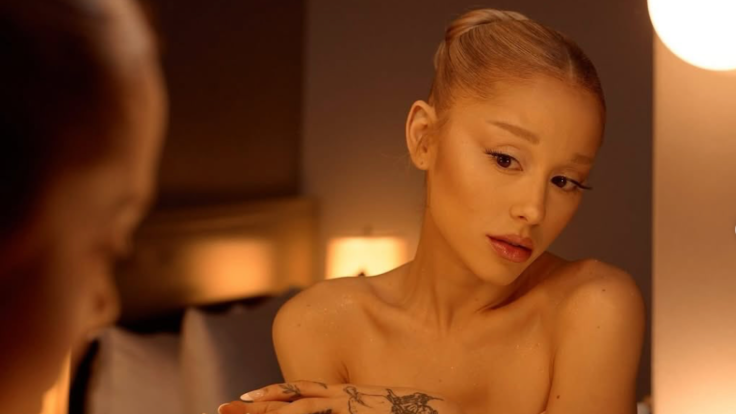'I Have a Name For Them': Ariana Grande Gets Candid About The 'Monsters' That Haunt Her Mind
On Shut Up Evan Podcast, Ariana Grande Explains How Naming Her Anxieties Helps Her Cope

Ariana Grande has described the intrusive thoughts and anxieties that follow her like 'monsters', saying she even gives them a name and learns to manage them rather than fight them.
The star, currently promoting her role in the Broadway transfer of Wicked and preparing for an Eternal Sunshine tour, spoke candidly about mental health, grief, and the creative process in a wide-ranging interview on Evan Ross Katz's Shut Up Evan podcast released on 24 October 2025.
In the conversation, she framed the intrusive, persistent negative thoughts she lives with as something she can address and, at times, even work with, language she used to illustrate how she copes rather than denies the experience.
Naming the 'Monsters' and Choosing How to Respond
On the podcast, Grande described the inner voices and anxieties that surface during intense public scrutiny and personal loss, saying she 'has a name for them' and, when needed, asks them to 'disappear' — but does so 'lovingly'.
The line has since circulated across outlets because it crystallises a softer, therapeutic approach to intrusive thoughts: personify, acknowledge, then manage.
That phrasing sits within a longer, sober reflection. Grande tied the phenomenon to periods of grief and the aftermath of high-pressure moments in her life, notably the death of Malcolm McCormick (Mac Miller) and the Manchester Arena bombing, traumas she has publicly referenced before.
In the podcast, she situates these 'monsters' within an ongoing recovery process rather than as a single diagnostic label, stressing learning and routine as tools she has turned to.
Story Behind the Headline
Listeners of the podcast have responded strongly to Grande's candour; clips and excerpts shared on social media and on entertainment sites captured the quote and repeated the 'name them, love them, manage them' sentiment.
Her willingness to use intimate metaphors for internal experience, 'monsters', and a 'name' transforms abstract clinical language into an accessible narrative, and that has both advantages and risks. It eases stigma by modelling openness, but it also invites reductive readings that turn a nuanced mental-health strategy into a soundbite.
Importantly, Grande placed the revelation alongside concrete details about work and relationships: she discussed the rigours of the Wicked press schedule, the emotional labour of performing songs written in traumatic periods, and the ways routine and therapy have helped her maintain creative output.
The conversation, therefore, resists sensationalism; it anchors the 'monsters' quote in a broader narrative about recovery, professional responsibility, and the complexity of celebrity well-being.
Why This Matters for Public Conversation on Mental Health
When a high-profile figure like Ariana Grande speaks with nuance about intrusive thoughts, it has ripple effects. Fans and the public often seek tangible models for coping; Grande's emphasis on naming, kindness, and boundaries offers one such model rooted in accepted psychological practice.
At the same time, clinicians and advocates urge caution: celebrity talk can normalise help-seeking but should not replace professional guidance for those in crisis. The takeaway from this interview is not a single technique but an invitation to humane, sustained approaches to mental distress.
Grande's remark: simple, memorable, and richly metaphorical, will likely stay on social feeds. But within the full recording, it reads as a sentence in a longer conversation about grief, resilience, and the discipline of performance.
As she moves between theatre rehearsals, studio sessions, and therapy, the admission of 'monsters' becomes less a confessional stunt than a practical description of ongoing care.
© Copyright IBTimes 2025. All rights reserved.



















